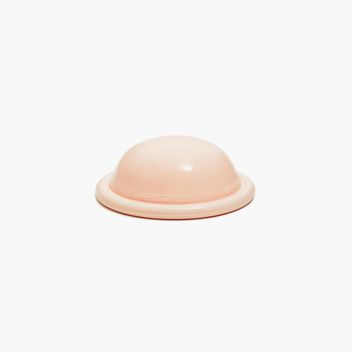How do I talk about abstinence and outercourse?
Talking about sex (or the decision to not have sex) is important, and it doesn’t have to feel awkward. Thinking ahead of time about what you want to say makes things easier.
How do I talk about not having sex?
Practicing abstinence only works when both partners are cool with not having sex. So the key to making abstinence work is talking about it with your partner/boyfriend/girlfriend — especially because abstinence can mean different things to different people.
It’s important to be honest with each other and make decisions about sex together. Talking about sex, birth control, and abstinence might seem hard, but it’s one of the best ways to keep your relationship happy and healthy.
It’s normal to feel awkward or embarrassed, especially if you’ve never talked about sex before. Here are some tips to keep you on track:
-
Know what practicing abstinence means to you. Think about how far you feel comfortable going and what your sexual limits are. Once you know exactly how you feel and what you need, it’s easier to tell someone else about it.
-
Talk before things get sexual. It’s hard to think and speak clearly when you’re all turned on in the heat of the moment. So think ahead of time about how to say “no” to sex if it comes up. What words are best? What actions or body language will make it clear how you feel? It can help to practice what you’ll say out loud, and think about what your partner may say back.
-
Be straightforward. The talk doesn’t have to be long or complicated. Just be up-front and clear about what you want and what you’re comfortable doing.
-
Be confident. You have the right to decide when and if you have sex, and you can say no to sex at any time, for any reason — even if you’ve already had sex before. (And if your partner doesn’t respect your limits, it could be a sign that your relationship isn’t healthy.)
Sex isn’t the only way to show your love and affection. People get to know each other, become close, and build trust by:
-
talking and listening
-
sharing
-
being honest
-
respecting each other's thoughts and feelings
-
hanging out together
Talking about sex doesn’t have to be a one-time thing that settles things forever — most couples have lots of talks about sex. Relationships change over time, and you and/or your partner may eventually have different feelings about sex and practicing abstinence.
If you want to start exploring sex with your partner, talk about birth control and/or sexually transmitted infections first. No matter what happens in your relationship, keep the conversation going and always be open and honest with each other.
How do I talk to my partner about outercourse?
There are lots of different ways to have outercourse, so it’s important to talk about what sexual stuff you’re comfortable with. It may feel kind of awkward at first, but it gets easier the more you talk. Here are some tips on outercourse:
-
Know what you want. Think ahead of time about what kinds of sexual things you want to do and don't want to do. Be confident in your choices — you have the right to say no to any kind of sexual activity, at any time, for any reason.
-
Put it on paper. If you’re having a hard time talking about what you want, you can write it down instead. Make a list of outercourse activities, and you and your partner can each mark down which ones you do want to do and don’t want to do.
-
Be super clear about your limits. Your partner can’t read your mind, so it’s important to be upfront about your feelings. And don’t assume anything about your partner — they should also be clear about what they want and don’t want. Set limits you both agree on and are comfortable with.
-
It’s okay to be nervous. If you’re feeling embarrassed, that’s totally normal. Let your partner know — chances are they feel the same way. It’s okay to admit that sex can be hard to talk about, and being honest with each other can make your relationship stronger.
-
Different is normal. You and your partner may have different desires. That’s totally okay, but it’s important to respect each other’s limits. It’s never okay to pressure someone to do something they’re not comfortable with. Stick to activities you both feel good about.
-
Keep the conversation going. Keep talking about your limits, likes, and dislikes. What feels good? What’s not working out? It gets easier to talk about sex the more conversations you have, and it may even bring you closer together.
Outercourse is very unlikely to cause pregnancy, but some sexual activities can spread STDs. If you’re going to have oral and/or anal sex, get tested regularly and always use condoms and dental dams to help protect yourselves from sexually transmitted infections.
If you do decide to have vaginal sex, it’s important to protect yourself from both STDs and unintended pregnancy. Luckily, condoms and internal condoms help prevent both — and they’re inexpensive and easy to get. Even if you don’t plan on having vaginal sex, it’s a good idea to keep some condoms around to help keep you safe no matter what.

 Abstinence
Abstinence
 Breastfeeding
Breastfeeding
 Cervical Cap
Cervical Cap
 Condom
Condom
 Diaphragm
Diaphragm
 FAM
FAM
 Implant
Implant
 Internal Condom
Internal Condom
 IUD
IUD
 The Patch
The Patch
 The Pill
The Pill
 The Ring
The Ring
 The Shot
The Shot
 Spermicide
Spermicide
 Sponge
Sponge
 Sterilization
Sterilization
 Vasectomy
Vasectomy
 Withdrawal
Withdrawal